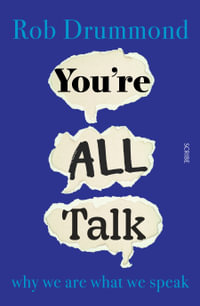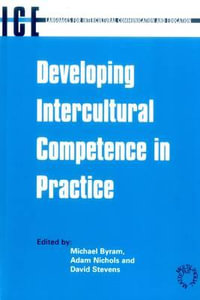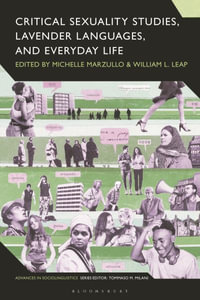"What a wonderful book! A timely resource for researchers working in both discourse analysis and social movement studies. Van Dijk does what he has always done, showing us clear ways to throw light on the identities, norms, values, emotions and ideologies that can be buried in communication. Notably for the times in which we live, this is a highly optimistic book, which foregrounds what has been, and is being, achieved in the name of openness, equality, rights and compassion."
Professor David Machin, Institute of Corpus Studies and Applications, Shanghai International Studies University, China
"In this enormously valuable introduction to the field of discourse studies, Teun van Dijk reviews diverse approaches for studying talk in movements, showing just what each can contribute to our understanding of key dynamics of mobilization. In the process, he extends his masterful work on the language of power and the language of resistance to that of solidarity. A signal contribution."
Francesca Polletta, Chancellor's Professor of Sociology, University of California, Irvine
"Written by a legend of the Critical Discourse Analysis tradition, this is a majestic piece of scholarship that reframes the field of social movement research from the perspective of text and discourse. Offering a systematic framework for the study of social movement communication as well as an insightful analysis of the argumentative structures of contemporary discourse on refugees, this is indispensable reading for scholars not only in Linguistics and Social Movement Studies but also across the humanities and the social sciences."
Prof. Lilie Chouliaraki, Chair in Media and Communications in the Department of Media and Communications, LSE
"Thirty years ago, sociologists and political scientists brought the concepts of frames and framing to the field of social movement and protest research, and soon these ideas became the dominant ways of talking about cultural, ideational, and discursive influences. Teun A. van Dijk's new book, Social Movement Discourse, offers a linguist's critique of this corpus from the standpoint of discourse, text, and cognition. Importantly, his discourse-analytic perspective directs attention to the empirical grounding of framing approaches in talk, text, and speech situations. Now in the 2020s, as methods of big-data analyses are poised to transform the study of movement discourses, van Dijk's monograph offers a critical look that can inspire new generations of researchers interested in the words, meaning, interpretation, and discursive contexts of social movements."
Hank Johnston, Professor of Sociology and Editor, Routledge Series on Social Movements
"Much more than an introduction to discourse analysis for social movement scholars, this extremely useful book, written by a most influential scholar in the field, provides stimulating discussions on how the study of style, rhetoric, argumentation, grammar, genre, and semantic enriches our understanding of texts and talks in contentious politics."
Prof. Donatella della Porta, Founding Dean of the Faculty of Political and Social Sciences, Director of Centre of Social Movements Studies, Director of the PhD Program in Political Science and Sociology
"Van Dijk's ability to make discourse analysis socially relevant, unequalled knowledge of the field and exemplary conceptual clarity combine to make this book both a compelling account of the constitutive role of discourse in contemporary social movements and an outstanding compendium of discourse analytical theories and methods."
Theo van Leeuwen, Professor of Language and Communication at the University of Southern Denmark
"There exists no one better than Teun van Dijk who combines the analytical brilliance and detailed empirical analysis to deconstruct the intricate workings of social movements. In this outstanding monograph, the case in point is the 'Refugees Welcome Movement' 2015/16. Van Dijk embeds his comparative qualitative analysis in a sophisticated theoretical socio-cognitive framework which emphasizes the salient role of discourse when studying social movements.
This book is a must-read for scholars and graduate students in the Social Sciences alike, who are interested in understanding and explaining the success (and failures) of glocal grassroot campaigns in European liberal democracies."
Ruth Wodak, Emeritus Distinguished Professor, Lancaster University/University of Vienna
























